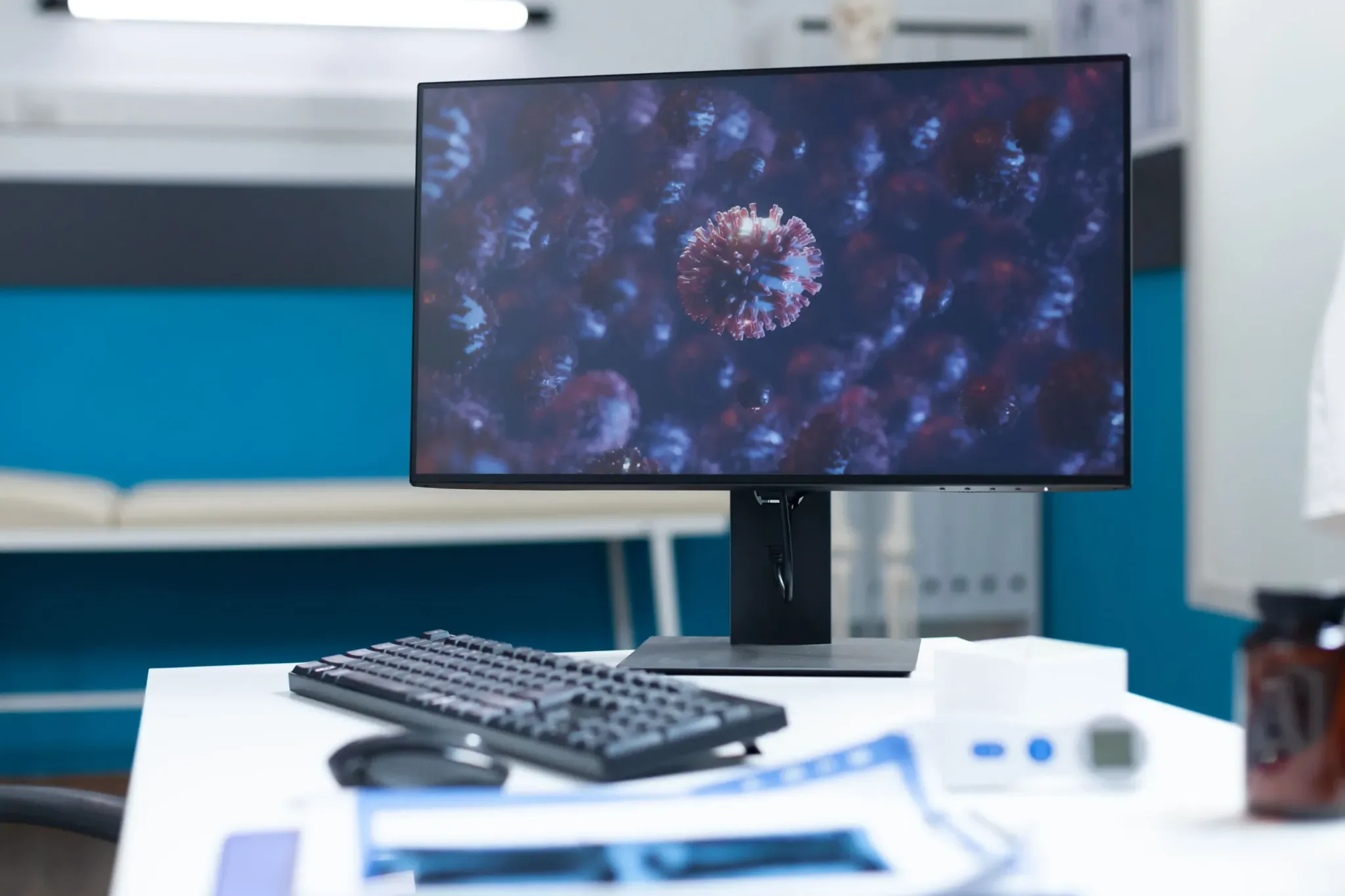ESR Automated Blood Test in Ramamurthy Nagar
ESR Automated Blood Test in Bangalore – Details in Brief
| Also Known As | ESR (Erythrocyte Sedimentation Rate), EDTA Blood, Sed Rate Test |
|---|---|
| Purpose | Help assess inflammation and infection in the body, supports monitoring of disease activity in conditions like rheumatoid arthritis and lupus, and assists in evaluating treatment response |
| Preparation | Clinical History Required |
| Fasting | Not Required |
| Reporting Time | After 4 hours |
| Cost | 150 |
Test Overview
What is an ESR Automated Blood Test in Bangalore?
An ESR automated blood test measures how quickly red blood cells settle at the bottom of a test tube within one hour. The ESR test helps detect inflammation in your body, which may suggest infections, autoimmune disorders, or other inflammatory diseases.
What Does an ESR Automated Blood Test Measure in Bangalore?
The ESR test provides important insights into your body's inflammatory status:
- Sedimentation rate - The speed at which red blood cells settle in a vertical tube over one hour
- Inflammation markers - Higher values indicate increased inflammation in the body.
- Disease activity - Changes in ESR levels help monitor the progress of inflammatory conditions.
- Treatment response - Shows how well your body responds to anti-inflammatory treatments.
- General health status - Provides insights into your overall inflammatory state.
Who Should Consider an ESR Automated Blood Test?
Several groups of people may benefit from getting an ESR test based on their symptoms or medical history:
- Patients experiencing unexplained fever, joint pain, or muscle stiffness.
- Individuals with symptoms of autoimmune conditions like rheumatoid arthritis or lupus.
- People who are being evaluated for temporal arteritis or polymyalgia rheumatica.
- Patients with chronic inflammatory diseases who require monitoring.
- Those undergoing treatment for inflammatory conditions who need regular progress monitoring.
- Individuals with unexplained weight loss or persistent fatigue.
What is the Purpose of an ESR Automated Blood Test?
The ESR test is a valuable nonspecific marker used to detect and monitor inflammation in the body. It helps doctors identify potential health risks early and track how well treatments are working.
The test benefits include early detection of inflammatory diseases, accurate monitoring of treatment effectiveness, assessment of disease activity in chronic conditions, and prevention of complications through timely medical intervention.
ESR Automated Blood Test Booking & Reports – Metropolis Healthcare India
How to Book an ESR Automated Blood Test with Metropolis Healthcare in Bangalore?
- Simple Online Booking
You can book your test easily through the Metropolis Healthcare app or website Select the ESR Automated Blood Test, choose a convenient time slot, and provide your address for a blood test at home. You can also visit the nearest Metropolis Lab if you prefer to give the sample directly at the lab. - Safe Home Sample Collection
Our trained phlebotomists ensure the timely collection of your sample while strictly following all safety and hygiene protocols. - Sample Tracking Updates
Stay informed at every step. From collection to testing, you can track your sample directly through the Metropolis Healthcare website. - Accurate Laboratory Testing
Your sample is processed at our NABL & CAP accredited laboratories, where expert technicians ensure accurate results. - Quick & Easy Reports
Receive your test reports promptly via email, WhatsApp, or by downloading them directly from the Metropolis Healthcare website or app.
How Long Does It Take to Get the ESR Automated Blood Test Report from Metropolis Healthcare in Bangalore?
Reports are usually available within 4 hours after the sample reaches the lab.
Note: Reporting time may vary depending on your location.
Where Can I View or Collect My ESR Automated Blood Test Results?
Test results from Metropolis Healthcare can be accessed through multiple convenient channels. You can log in to the Metropolis website using your credentials or use the Metropolis Healthcare App to view and download your reports. Additionally, test reports are sent via email or WhatsApp, and you also have the option to collect a physical copy directly from the lab.
Is Home Sample Collection Available for the ESR Automated Blood Test Near Me in Bangalore?
Yes, Metropolis Healthcare provides home blood sample collection for the ESR test directly to your doorstep. Our trained and certified phlebotomists visit your home at your preferred time, following strict safety protocols during sample collection. This service ensures accurate results while maintaining high hygiene standards and eliminates the need for travel.
Guide to Interpreting ESR Automated Blood Test Results
The table below helps you understand what your ESR test results mean:
|
Parameter |
Reference Range |
High Values May Indicate |
Low Values May Indicate |
|
ESR (Erythrocyte Sedimentation Rate) |
0-20 mm/hr |
Inflammation, infections, autoimmune disorders, pregnancy, menstruation, hypothyroidism, or multiple myeloma |
Usually not clinically significant |
What Preparations are Needed for an ESR Automated Blood Test?
The ESR test requires minimal preparation, making it convenient for most patients.
- No fasting required - You can eat and drink normally before the test.
- Continue regular medications - Unless specifically advised otherwise by your doctor.
- Wear comfortable clothing - Choose clothes with sleeves that can be easily rolled up.
- Stay hydrated - Drink adequate water before your test for easier blood collection.
ESR Automated Blood Test/Packages That You Can Book With Metropolis Healthcare
Here are comprehensive testing options available that include the ESR test along with other important health parameters:
|
Test/Package Name |
Purpose/Highlights |
|
Comprehensive blood analysis, including red blood cells, white blood cells, and platelets. |
|
|
Detailed blood count with differential white blood cell analysis |
|
|
Complete package for fever evaluation, including malaria screening. |
ESR Automated Blood Test Prices Across Different Cities
The cost of an ESR automated blood test may vary depending on your location. Here's a table showing the approximate prices in different cities:
|
City |
Price |
|
₹100 - ₹200 |
|
|
₹100 - ₹200 |
|
|
₹100 - ₹200 |
|
|
₹100 - ₹200 |
|
|
₹100 - ₹200 |
|
|
₹100 - ₹200 |
ESR Automated Blood Test Price in Bangalore
Metropolis Healthcare is a leading diagnostics centre and pathology lab in India equipped with the latest state-of-the-art technologies that provides the ESR Automated Blood Test with a clear pricing structure
The price of ESR Automated Blood Test in Bangalore is ₹ 150
We are committed to deliver accurate and quality results from the best labs in India with complete transparency regarding test cost and turnaround time. No matter where you are, we strive to offer patients high-quality service that is affordable and accessible.
Frequently Asked Questions
The ESR test price is ₹150 at Metropolis Healthcare in Bangalore. This price includes professional sample collection, laboratory processing at NABL & CAP accredited facilities, and comprehensive reporting with medical interpretation.
ESR testing frequency depends on your medical condition and your doctor's recommendation. For healthy individuals, it's not a routine test. If you have inflammatory conditions like rheumatoid arthritis, your doctor may suggest periodic testing every few months to monitor treatment response.
You should get an ESR test when your doctor recommends it, based on symptoms, such as unexplained fever, joint pain, persistent headaches, or fatigue. It's also useful for monitoring known inflammatory conditions and evaluating treatment effectiveness in autoimmune disorders.
Yes, Metropolis Healthcare provides convenient online access to your ESR test reports through their website and mobile app. You can download reports securely using your unique credentials, and results are also sent via email and WhatsApp for easy access.
Yes, you can easily book your ESR test online through the Metropolis Healthcare website or mobile app. Choose from convenient home collection services or visit any nearby Metropolis lab location in Bangalore for sample collection at your preferred time.
How it Works?
All our phlebotomists are vaccinated
At Metropolis Healthcare, your well-being is our top priority. Rest assured, all our skilled phlebotomists are vaccinated, ensuring a safe and secure experience for you. Our team upholds the highest healthcare standards, and your health is in capable hands. Your safety is non-negotiable, and at Metropolis, we take every measure to guarantee it.
Our Phlebotomists maintain a high standard of safety precautions
Our dedicated team of phlebotomists prioritises your safety before anything else. They implement stringent safety measures to guarantee your well-being during their visit.
Strictly adhering to aseptic techniques, our phlebotomists maintain a sterile environment with thorough sanitization and the use of gloves, masks and face shields. Needles are disposed of with utmost care, following rigorous guidelines to minimise any potential risks. We leave no room for compromise when it comes to personal protective equipment (PPE), ensuring both you and our staff are well protected.
Our phlebotomists collect samples safely
The phlebotomists at Metropolis Healthcare are proficient in safe sample collection. They skillfully and gently draw blood, minimizing any discomfort you may feel. We prioritize your safety by using sterile, single-use needles and barcoded vials to completely eliminate any risk of cross-contamination. Our collection area is carefully sanitized before, during, and after your sample collection.
Samples are processed at high-tech facilities
Metropolis Healthcare takes pride in its state-of-the-art facilities, where your samples are thoroughly processed. Our labs are equipped with cutting-edge machinery with advanced technology, eliminating chances of human error. From the moment your sample arrives at our facility, it undergoes an automated process.
Your samples are stored in clean and secure facilities
We leave no room for compromise when it comes to the storage of your samples. Our storage facilities are regularly cleaned and disinfected, upholding the highest standards of healthcare safety.
Temperature-controlled environments and cooling facilities ensure that your samples remain fresh and the results produced are accurate. Our cutting-edge security measures prevent unauthorized access, guaranteeing the confidentiality of your health data.
Metropolis provides accurate digital reports
Our advanced sample processing machines not only deliver swift results to you but also generate precise digital reports. We provide conclusive diagnoses through meticulous re-checks and repeat specimen analyses, if required, at no extra cost, adding an extra layer of accuracy and dependability. This unique approach sets us apart, earning the trust of top doctors and hospitals across the country.
Your health is our priority, and we spare no effort in our commitment to providing you with the most accurate insights you can rely on.
Ratings & Reviews (0)
Why Metropolis?
Metropolis has a team of 200 senior pathologists and over 2000 technicians delivering diagnostic solutions in the areas of routine, semi specialty and super specialty domains like Oncology, Neurology, Gynaecology, Nephrology and many more.
We offer a comprehensive range of 4000+ clinical laboratory tests and profiles, which are used for prediction, early detection, diagnostic screening, confirmation and/or monitoring of the disease.



.png)
















 WhatsApp
WhatsApp
